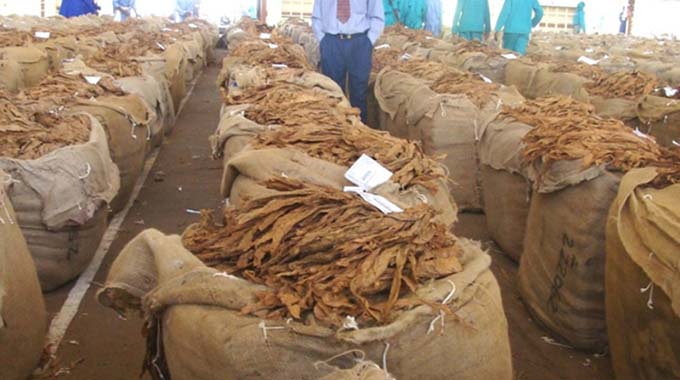Editorial Comment: Urgent action needed to save tobacco industry

The date for the opening of the 2020 tobacco marketing season may not have been announced yet, but is definitely drawing closer with each passing day.
Under normal circumstances, the floors open end of February but owing to a delayed and erratic rainy season, the Tobacco Industry and Marketing Board (TIMB) is yet to announce the date.
The announcement will essentially be overshadowed by anxiety among different stakeholders that make the event realistic every year.
The source of the seething anger is obviously the payment system used last season, which saw many growers and even merchants boycotting at some point, citing irregularities that they felt would leave them poorer than they were before the season started.
The farmers’ concerns make sense and if not addressed this time around, the future of the tobacco industry will definitely be uncertain.
Tobacco has in recent years become the goose that lays the golden egg for Zimbabwe’s economy hence the need for all stakeholders, including the Government, to level the playing field to enable all players to produce effectively and profitably.
Just recently, farmers’ organisations and associations petitioned Reserve Bank of Zimbabwe (RBZ) Governor Dr John Mangudya, highlighting their expectations for the 2020 tobacco marketing season’s payment systems.
The letter outlined how last year’s payment system left growers facing reduced profitability, inability to retool for the 2020 season, outright dependency on contractors instead of funding their operations on their own and failure to access the 50 percent US dollar retention facility as well as Zimbabwe or US dollar cash payments as per RBZ guidelines, among other complaints.
It is only normal for the farmers to demand a full resolution of the outstanding US dollar nostro amounts from last season and the 2008 US dollar tobacco Treasury Bills as well as push to have all sale proceeds in US dollar given that contractors are also demanding repayments in foreign currency.
All other service providers are quoting their prices in US dollars, which complicates the farmers’ efforts to remain afloat as businesspeople.
On the other hand, giving the same withdrawal limits to farmers as those given to the generality of Zimbabweans when they liquidate their nostro accounts may be unfair as farmers earn their incomes once or just twice a year so they need the opportunity to take care of business once they get paid.
The RBZ may need to consider farmers’ request to be allowed to convert a minimum of US$600 per sale from nostro funds to cash.
RBZ should realise that the tobacco marketing season brings lots of liquidity into the economy every year so the farmers may need to be treated with a bit of decency and dignity lest many give up on the golden leaf.
Already, the situation on the ground is suggesting that something is not going the way it should be.
The hectarage for the crop as at February 13, 2020, has dropped from 106 558ha in the 2018-19 season to 100 426ha in the 2019-20 cropping season, according to statistics from TIMB, while the number of registered growers also dropped from 170 169 in 2019 to 147 241 in 2020, marking a 13 percent decline.
The most worrying scenario is that only 7 504 new growers were recorded for 2020, while 2019 had 41 121, which marks a decline of 82 percent.
This shows that farmers’ perception of tobacco as a high-value crop is dropping and this will have a telling effect on the economy.
It is likely that farmers are switching to crops that do not have hassles, especially in the payment system, even if they are less rewarding.
Last year, farmers were paid half of their earnings through Zimbabwe dollar accounts with the remaining half being deposited into foreign currency accounts, but the majority of them could not access the funds easily due to their failure to appreciate the processes involved.
The payment system was only announced a few days before the season started, which made it difficult for the farmers to understand it.
This season, we expect the farmers to be advised in time so that they have time to familiarise themselves with the systems.
Of course, both RBZ and TIMB have stressed that there will not be significant changes in the payment system, but it is still crucial for farmers to be taken through the system once again before the season kicks off considering that they also have varying levels of literacy just like any section of the society.
There are reports that merchants are threatening to withdraw if farmers continue to be deprived of their US dollar component, which they feel is compromising the quality of the leaf, as farmers are no longer giving it their all.
Last season, farmers delivered a record 259 million kg, up from 253 million kg in 2018 despite challenges that affected production and marketing of the crop but the value of crop from 2018 was higher than that of 2019, which may mean that the quality was dropping or that buyers were just using the issue of quality to fleece farmers and get more volumes but for very little.










Comments